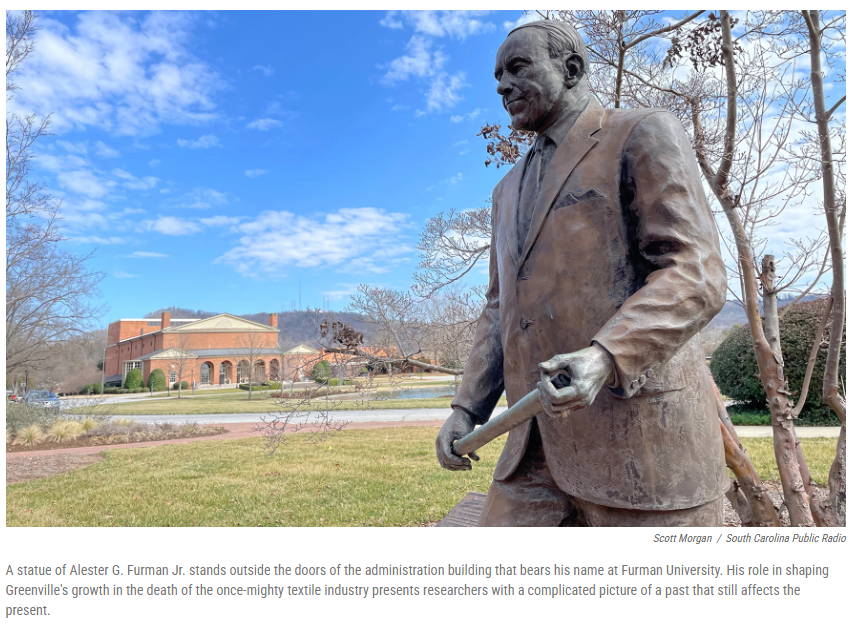“It isn’t a hard choice,” we said. On one side was a candidate who would abide by the Constitution and laws of the United States and accept the outcome of elections. On the other was a candidate refusing to accept a 2024 defeat even as memories of his attempted coup in 2020 remain fresh; vowing to punish the “enemy within”; and promising that mass deportations will be “bloody.” That was what we meant by democracy being on the line.
Some are coping by pointing out that when an incumbent president is as unpopular as Joe Biden, it’s a near impossibility for his party to retain the White House. Perhaps no Democrat could have escaped the Biden undertow, but it was particularly challenging for his vice president.
As to why Biden was so unpopular, some of us (myself included) wrongly attributed it mostly to his age. But exit polls suggest that the economy and the border were also anvils shackled to his — and then Kamala Harris’ — ankles. As David Dayen of The American Prospect noted, 2024 saw half the world’s population head to the polls, and “with a few notable exceptions … virtually every party that was the incumbent at the time that inflation started to heat up around the world has lost.”
Could Harris have done a better job of blunting the inflation issue? In 2012, the economy had not yet fully recovered from the great recession of 2008-2009. In his reelection bid, Barack Obama shifted blame for the lackluster performance backward toward George W. Bush. Perhaps Harris would have been well-advised to tell a similar story about inflation. Then again, recessions are not as politically lethal as inflation.
As for the border, how could Harris separate herself from Biden? Should she have declared that Biden’s approach was a mistake that she would correct once in office? That’s a dicey proposition politically. Why would voters upset about the border choose a reformed dove over an aggressive hawk? She might have had a rule-of-law argument — that the Congress must reform asylum law, and until they do, the president lacks the power to address the issue. But when Biden imposed executive orders in June, dramatically reducing border crossings, he vitiated that case.
According to this coping mechanism, the voters were in a sour mood (just consult the right track/wrong track polls) and did what voters always do: punish the incumbent by voting for the change candidate. Nothing more to see here.
But those of us who see a second Trump presidency as a hinge moment of history — a fateful departure from what made us a great nation — think there is a great deal more to see here. To follow Trump’s behavior closely is to feel that this election is not like any other. This lying cretin was seen a few days ago pantomiming fellatio on a microphone (which is perhaps preferable to his usual vomit of lies). It’s not as if his policy chops somehow counterbalance his vulgarity, cruelty and self-absorption. His campaign promises consist of ludicrous proposals to magically balance the budget and eliminate the income tax through tariffs, to round up and deport 11 million or more people, and to solve foreign conflicts through his supposed power of intimidation (even as he contradicts this by constantly abjuring war).
The voters have chosen to elevate a cartoon character to the highest office in the land. From that perch, he will close down the federal cases against himself; pardon the Jan. 6 “hostages” or “political prisoners” or whatever he’s calling them these days; appoint a series of toadies, fantasists and low-lives to lead other agencies; and then set about firing most of the capable, responsible civil servants in the government to replace them with the likes of Steve Bannon, Stephen Miller, Boris Epshteyn and other loyal goblins.
Trump often derides the United States as a Third World country. Now he will start to transform us into one.
To be sure, many of the people who voted for Trump were not voting for what they will get. And still, it’s their fault for not doing their duty to shun him.
Perhaps the voters have never prioritized democracy, the rule of law or fair play. What, then, has changed? This is an elite failure of the first order. The opinion shapers have signally failed to perform their function. In a healthy polity, it falls to entities like political parties, churches, newspaper editorial boards, radio hosts, business executives and news analysts to shape public opinion, not follow it. If not for the excusers and explainers; if not for the whataboutism at places like The Wall Street Journal and National Review; if not for the craven capitulation of Wall Street wizards and Silicon Valley prima donnas, if not for the cowardice of 95% of elected Republicans, ordinary voters would not have felt comfortable voting for a clown with a flamethrower.
If he succeeds in imposing tariffs that spark inflation and a trade war; if his deportations, firings, abuse of the justice system, corruption of law enforcement and degradation of the health care system cause America’s quality of life to decline, what then? Will the voters do what voters always do and vote for the change candidate next time? Perhaps. Or will the elites who greased the skids for Trump’s second election also excuse and explain away every failure as the work of the “deep state” or “saboteurs”? We are about to find out.
Mona Charen is policy editor of The Bulwark and host of the “Beg to Differ” podcast. Her new book, “Hard Right: The GOP’s Drift Toward Extremism,” is available now.




